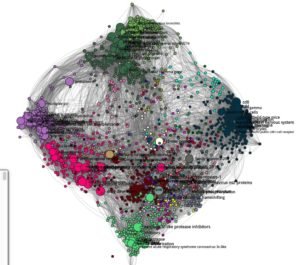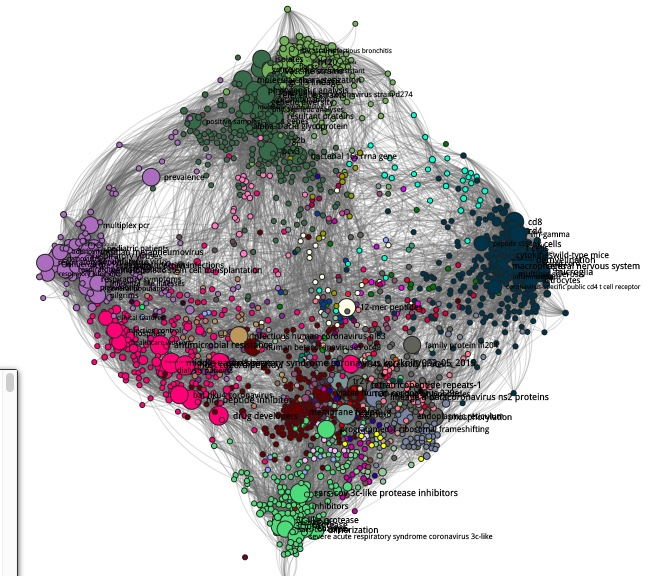The Institute of Complex Systems of Paris Île-de-France has published several maps built from the automated analysis of all scientific publications dedicated to Covid-19.
"Faced with the Covid-19 epidemic," explains its director David Chavalarias, "we wanted to put our expertise in data science at the service of researchers working on the virus. As in any discipline, they have access to a huge amount of information available in scientific articles, but it is often difficult to find their way around. This is where our maps come into play: by analyzing several thousand articles, they make it possible to highlight the main themes addressed on the virus and the way they are organized. At a glance, we can thus visualize the state of the art of research on the subject. And by browsing through these maps, you can directly access relevant articles on a specific issue and be sure not to miss a key theme on a given issue. This facilitates the work of researchers and helps advance research on the virus. Four knowledge maps have already been published: mapping of research on the coronavirus, research on antivirals, research on chloroquine and hydroxychloroquine and an observatory of clinical trials covid-19
Review of the scientific literature on coronavirus
"These maps have first of all a bibliographic virtue: they allow researchers to quickly find important themes and associated articles to consult. (...) The other virtue of these maps is to encourage researchers to collaborate. Indeed, by explicitly showing the links that exist between terms used by different communities, these visualizations can encourage scientists to exchange ideas in order to advance. In fact, it is often at the intersection between specialties that important discoveries are made.Références :





